Films
Films 2008
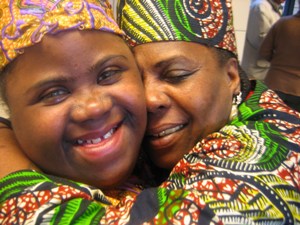 Angelique & Titia
Angelique & TitiaClaudia Tellegen, The Netherlands, 2007, 70 min.
Synopsis: Angelique is 22 and has Down syndrome. She lives with her mother Titia. The bond between Angelique and her mother is very strong. "Angelique is my guardian angel" Titia says. Their lives are about to change drastically, because Titia is homesick for her native country Suriname. She longs to spend the rest of her life in her motherland. For Angelique, the solution is simple: she finds herself old enough to move out and live in a group home.
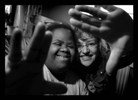
Bio: Claudia Τellegen has worked for the Dutch TV as a documentary filmmaker for 15 years. Her films always focus on the dilemmas people face. She makes documentaries for both adults and children. To give her films a more personal feel she has been doing her own cinematography over the last 4 years.
 Breadmakers
BreadmakersYasmin Fedda, Scotland, 2007, 11 min.
Synopsis: At a unique Edinburgh bakery, a community of workers with learning disabilities makes a variety of organic breads for daily delivery to shops and cafes in the city. The workers interact using individual expressions, repetitive speech and sign language, revealing intricate social relationships with each other and their support workers. The featured bakery is part of a centre inspired by the ideas of Rudolf Steiner where the workers realise their potential for self-discovery and creativity in a 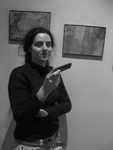 social environment.
social environment.
 social environment.
social environment. Bio: Prior to making the award winning Breadmakers, Yasmin spent two months filming in a Syrian monastery in the desert to produce Milking the Desert. It was shown at several festivals and won a jury prize in Moscow. Since then she has been working on a documentary featuring a group of pensioners in Damascus.
 Care of Footpath
Care of FootpathKishan Shrikanth (Master Kishan), India, 2005, 124 min.
Synopsis: This is the story of an orphan who is forced to beg on the streets. One day this boy escapes. A kind washer woman finds him and brings him to live with her in the slum. With his friends, he makes a living by picking rags. In a chance encounter, some school students call him an uneducated brute and challenge him to learn four alphabets. The slum boy sets out to win the challenge. By learning the alphabets his life changes, as he is now able to borrow old text books from school children and to read them. This is the success story of a street boy, inspired by the true life stories of great people like Thomas Edison and the ex-President of India Abdul Kalam.
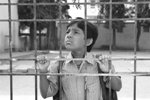
Bio: At the age of 12, Kishan has acted in 28 feature films and more than 300 television episodes. He is learning photo-designing, 3D-computer graphics and editing. His name appears in the Guinness Book of World Records for being the world's youngest director. His first film, Care of Footpath, has won several awards.
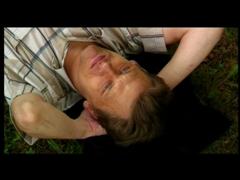 Cripple_38
Cripple_38Adam Leniec, Poland, 2006, 27 min.
Synopsis: They met on the Internet. He had a feeling this was his last chance. He fought for her, despite the objections of his friends and family. They met and got to know each other better. At the beginning it was beautiful, but then he had to make a choice. A story of a man trapped in his own body, who fights for his love and dignity.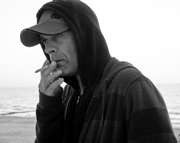

Bio: Born in 1969, Adam Leniec studied Film Direction. Cripple_38 is his most recent documentary. He has also worked as an actor, editor and cameraman.
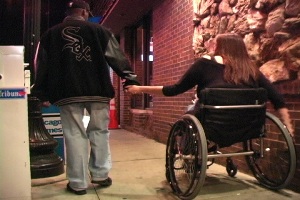 Doin' it: Sex, Disability & Videotape
Doin' it: Sex, Disability & VideotapeSalome Chasnoff, USA, 2007, 35 min.
Synopsis: The Empowered Fe Fes, a peer group of young women aged 16 to 24 with different disabilities, strike again with their second video production, an insightful investigation into the truths about sex and disability. In the video, the Fe Fes educate themselves about sex by talking with activists and scholars. The viewer tags along on a 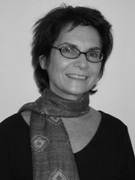 date between a woman with a disability and her able-bodied boyfriend, exploring relationship issues of dating with a disability over a candle-lit dinner.
date between a woman with a disability and her able-bodied boyfriend, exploring relationship issues of dating with a disability over a candle-lit dinner.
 date between a woman with a disability and her able-bodied boyfriend, exploring relationship issues of dating with a disability over a candle-lit dinner.
date between a woman with a disability and her able-bodied boyfriend, exploring relationship issues of dating with a disability over a candle-lit dinner.Bio: Salome Chasnoff is an award-winning documentary filmmaker, installation artist and media activist who has been guiding Beyondmedia's artistic production since founding it in 1996. She has been an arts educator for more than 20 years in university and community settings.
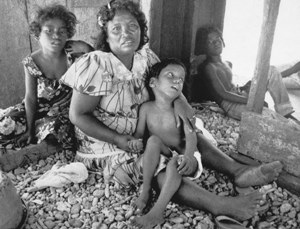 Half Life: A Parable for the Nuclear Age
Half Life: A Parable for the Nuclear AgeDennis O' Rourke, Australia, 1986, 86 min.
Synopsis: Half Life reveals the effects of United States nuclear testing on the inhabitants of the Marshall Islands. The film combines declassified U.S. Defense Department archival footage of the 1954 Bravo Nuclear Test with contemporary interviews of the local people. Inexplicably, the islanders were not evacuated as they had been in 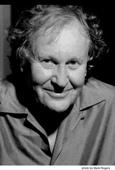 previous tests. The evidence gathered in Half Life presents a chilling picture of a cynical radiation experiment on a human population. The film examines the role of the United States government in Marshall Islands nuclear testing and the long-term consequences of Bravo.
previous tests. The evidence gathered in Half Life presents a chilling picture of a cynical radiation experiment on a human population. The film examines the role of the United States government in Marshall Islands nuclear testing and the long-term consequences of Bravo.
 previous tests. The evidence gathered in Half Life presents a chilling picture of a cynical radiation experiment on a human population. The film examines the role of the United States government in Marshall Islands nuclear testing and the long-term consequences of Bravo.
previous tests. The evidence gathered in Half Life presents a chilling picture of a cynical radiation experiment on a human population. The film examines the role of the United States government in Marshall Islands nuclear testing and the long-term consequences of Bravo.Bio: Dennis O' Rourke has travelled extensively in South East Asia making films. He has worked as a cinematographer for the Australian Broadcasting Corporation. Retrospectives of his work have been held all over the world. His many awards include a Sundance Film Festival Award, a Berlin Film Festival Award and the Australian Film Institute Best Director Award.
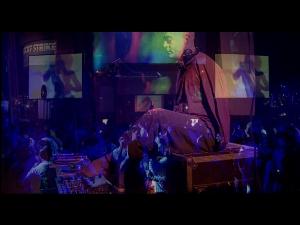 Hero: Wings Are Not Necessary to Fly
Hero: Wings Are Not Necessary to FlyÁngel Loza, Spain, 2007, 25 min.
Synopsis: Pascal Kleiman was born without arms, but this circumstance did not prevent him from continuing with his career as a disc jockey in techno music. A clear example that proves that willpower is stronger than any obstacle, whatever this may be. The film demonstrates that "wings are not necessary to fly".

Bio: Ángel Loza started to experiment with Super 8mm and photography during the "Movida Madrileña" social movement in Madrid (1980-1990). He is self-taught and considers film directing his passion. His films, which are always a sharp critique of society, have been screened all over the world.
 Hope
HopeAmy Lyne, USA, 2008, 4 min.
Synopsis: My photography is the voice of those I have portrayed. It whispers that the things we share are far more important than those which separate us. It pleads we learn to appreciate the diverse and acknowledge the universal. If we heed to this, we can aspire to forge change not only for oneself, but also for the other. We must dare to dream of accomplishing great things, as we can soar as high as we hope.
"Kites rise highest against the wind - not with it.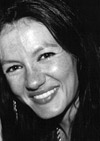

Winston Churchill
Bio: Amy Line resides in New York. She works as a photojournalist and has traveled to countries such as Angola, China, Guatemala and India. Her work has been presented in exhibitions all over the world and she has been nominated for the "International Color Awards" photojournalism award.
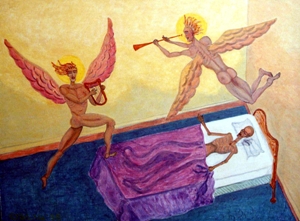 Hope Is the Thing with Feathers
Hope Is the Thing with FeathersAndy Abrahams Wilson, USA, 1999, 28 min.
Synopsis:Hope Is the Thing with Feathers is a film built around a poem which San Francisco poet and artist Beau Riley wrote as his lover for 12 years lay dying. The film shows one man plumbing the depths of his sorrow to find meaning through the strength of his mind, imagination and devotion to his partner. Through his powerful poetry, paintings and testimony Beau draws a moving portrait of love between two people, each crippled in his own way: David, a paraplegic; Beau a recovering alcoholic.
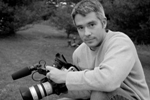 Bio: Andy Abrahams Wilson is an Emmy Award-nominated producer and director. With a background in photography and anthropology, he uses the camera to explore his subjects both artistically and journalistically. He is also a founder of Open Eye Pictures and a member of the Academy of Television Arts & Sciences.
Bio: Andy Abrahams Wilson is an Emmy Award-nominated producer and director. With a background in photography and anthropology, he uses the camera to explore his subjects both artistically and journalistically. He is also a founder of Open Eye Pictures and a member of the Academy of Television Arts & Sciences. 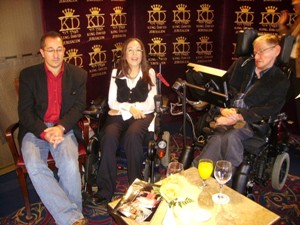 How Dare You?
How Dare You?Uri Shin/ Lizka Assa, Israel, 2007, 52 min.
Synopsis: Hanni - an unstoppable lady - is the first woman ever to have had two children in an implausible physical condition, despite disapproval all around her and against medical advice. She fights the establishment, overcomes financial hardships, studies and builds a new career, all of which she's doing after having been diagnosed with a fatal neurological disease (ALS), with a prognosis of only two years left to live. The camera of How Dare You? follows a strong and inspiring woman in her volatile and rocky journey, the highlight of which is when she gets to meet the globally renowned physicist, Stephen Hawking, who is afflicted with the same disease.

Bio: Lizka Assa is a graduate of the Film and Television Faculty of the University of Tel Aviv. Her work includes feature films, commercials, television series and documentary films.
Uri Shin is a graduate of the Film and Television Faculty of the University of Tel Aviv. He is a writer, director, editor and consultant of television programs.
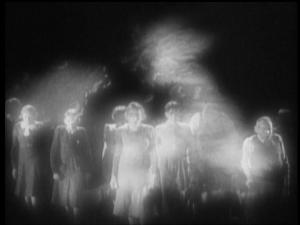 I Cannot Speak Without Shaking
I Cannot Speak Without ShakingTodd Herman, USA, 2007, 5 min.
Synopsis: I Cannot Speak Without Shaking is a potent deconstruction of Nazi propaganda films that were made to advance arguments against people with disabilities during World War II. The video looks closely at eugenics and their contemporary ideological artifacts.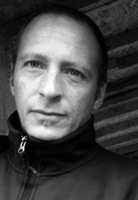

Bio: Todd Herman is a filmmaker, photographer and curator. The subjects of his film and photography work range from marginalized communities in Nepal to projects on death, sexuality and disability. His work has been shown in several countries. He recently published the book In Passing: A Book About Death.
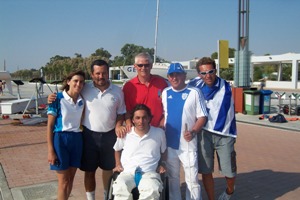 It Takes More than the Wind
It Takes More than the WindAlexandros Papaeliou, Greece, 2008, 20 min.
Synopsis: In the harbor of Mikrolimano four young people who became disabled as the result of an accident, are preparing, systematically and determinedly for a great journey. In sailing they have found not merely an outlet from their everyday routine, but also a purpose: distinguishing themselves in international athletic contests. They took part for the first time in the Athens Paralympic Games of 2004. Today they are getting ready for the Beijing Games. Through their grueling training every day they are winning the battle of life, of participation, of distinction, of acceptance. They are armed with the strength of their soul that tames the wind and the waves. Bon voyage...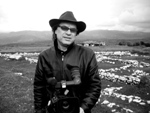

Bio: Alexandros Papaeliou studied Economics and Film. He has worked as a cameraman, film editor, director and producer. He is a board member of the Greek Directors' Guild since 2000. Along with other filmmakers, he publishes the film and arts magazine Diagogi Miden (Conduct Zero).
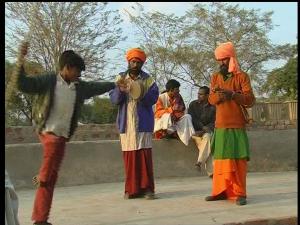 I Want to Live
I Want to LiveNargiza Mamatkulova, Kyrgyzstan, 2007, 9 min.
Synopsis:I Want to Live is a film about a man who wants to prove to all around him that hope never fades. This man is nearly 40 years old, and he has been an optimist all his life, despite the numerous difficulties he has had to face. He was born with a physical disability. And although he was never able to use his hands, he did not lose faith.  Eventually he started painting with his feet and this gave meaning to his life. He did not rely on other people's assistance but decided to earn money on his own by painting portraits of passers-by. He thus expressed his determination to be part of the community and not to be excluded.
Eventually he started painting with his feet and this gave meaning to his life. He did not rely on other people's assistance but decided to earn money on his own by painting portraits of passers-by. He thus expressed his determination to be part of the community and not to be excluded.
 Eventually he started painting with his feet and this gave meaning to his life. He did not rely on other people's assistance but decided to earn money on his own by painting portraits of passers-by. He thus expressed his determination to be part of the community and not to be excluded.
Eventually he started painting with his feet and this gave meaning to his life. He did not rely on other people's assistance but decided to earn money on his own by painting portraits of passers-by. He thus expressed his determination to be part of the community and not to be excluded.Bio: Born in 1983, Nargiza Mamatkulova studied Film, TV and Radio in Kyrgyzstan. He works as a journalist, cameraman and editor for the National Kyrgyz TV channel.
 I Want to Tell You Something
I Want to Tell You SomethingMartin Nguyen, Austria, 2006, 65 min.
Synopsis: Oskar and Leo are twins. Because his brother Oskar was born deaf, Leo's growing up bilingual: In addition to spoken language the family also uses sign language. I want to tell you something approaches this family's life with a great deal of care and sensitivity, in both normal everyday activities and also difficulties in communication.  Signs and gestures seem more direct than words, so that with time the viewer has the impression of coming close to the family.
Signs and gestures seem more direct than words, so that with time the viewer has the impression of coming close to the family.
 Signs and gestures seem more direct than words, so that with time the viewer has the impression of coming close to the family.
Signs and gestures seem more direct than words, so that with time the viewer has the impression of coming close to the family.Bio: Born in Malaysia in 1980, Martin Nguyen studied Journalism in Vienna. In 2004 he won the Shorts on Screen Competition. He lives and works in Vienna.
I Was Born When I Was Sixteen
Eric Bitoun, France, 2007, 52 min.
Synopsis: Dorine is a paraplegic since a plane crash which happened when she was sixteen years old. She has got over her handicap by becoming a pilot. Through this film, she gives us an exceptional testimony. We follow Dorine in her most beautiful fight, to give birth to a child.
Bio: Born in Algeria, Eric Bitoun works as a producer and film director. He has directed short films and documentaries that have been screened in international festivals and television channels in France and abroad.
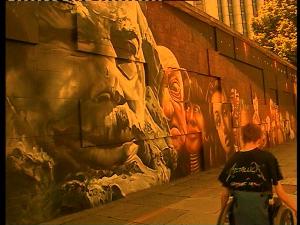 Kickoff: Attacking the Lethargy
Kickoff: Attacking the LethargySabine Radicke, Germany, 2006, 31 min.
Synopsis: Jens L. likes to listen to a lot of music too loud and drinks too much and too fast. He can't get a job and his parents are silly. On first impression Jens L. seems to be an ordinary young man. Suddenly, Jens L. is sitting on a wheelchair and everything is different. "Muscular Dystrophy" is the diagnosis and from now on Jens L. doesn't belong to the life he thought he knew so well. The word future acquires another meaning.  According to the doctors, he should already be dead. But he still fights for a small piece of ordinary life.
According to the doctors, he should already be dead. But he still fights for a small piece of ordinary life.
 According to the doctors, he should already be dead. But he still fights for a small piece of ordinary life.
According to the doctors, he should already be dead. But he still fights for a small piece of ordinary life.Bio: Sabine Radicke was born in Germany, in 1975. She works as a short film director since 2000. She completed a Fine Arts graduate program in 2005. Her work has been screened in international festivals and exhibitions.
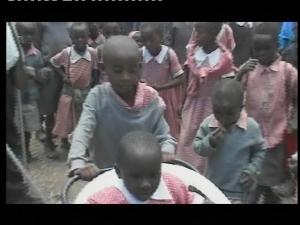 Kimemia and the Mentally Disabled Persons of Naivasha
Kimemia and the Mentally Disabled Persons of NaivashaErcole Rocchetti, Kenya, 2006, 42 min.
Synopsis: Josephat Kimemia has had difficulty walking since he was afflicted with polio and has experienced discrimination all his life. However he found meaning in life when he discovered a more difficult type of disability than his own: mental disability. He once heard about a 14-year-old boy that had spent all his life locked up in a hen house, in the same town as his. Although the boy had an inconsequential disability, he could not speak. Kimemia discovered other similar cases and decided to create the United Disabled Persons of Naivasha, an association that is looking after 400 mentally disabled children.
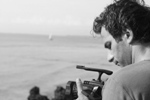
Bio: Ercole Rocchetti is an Ιtalian journalist and director specializing in humanitarian issues. Ηe has filmed many documentaries in Italy, Africa and Εastern Europe for RAI 3 and for humanitarian organizations.
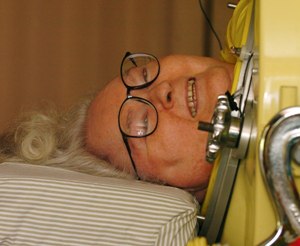 Martha in Lattimore
Martha in LattimoreMary Dalton, USA, 2005, 45 min.
Synopsis: The first thing you notice when meeting Martha Mason is the bright yellow iron lung that encases her body and helps her breathe just as it has since 1948 when, at age 11, she contracted polio. She has lived in this life-saving machine longer than anyone else in the world, and she has lived most of those days in Lattimore, a small town located in North Carolina. At first the image and sound of the iron lung is distracting if not shocking, but soon
 after talking with Martha, the massive, metal cylinder becomes inconsequential because it is so greatly exceeded by her spirit.
after talking with Martha, the massive, metal cylinder becomes inconsequential because it is so greatly exceeded by her spirit. Bio: Mary Dalton is an Associate Professor of Communication at Wake Forest University, director and producer. Her documentaries have been screened at various festivals, museums, galleries and libraries. Dalton is also a media critic and regular contributor to the National Public Radio affiliate WFDD-FM, in North Carolina.
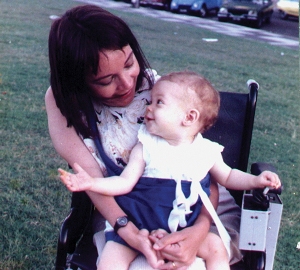 Mothers on Wheels
Mothers on WheelsMario Piazza, Argentina, 2006, 70 min.
Synopsis: Mοnica was afflicted by poliomyelitis, when she was 7 years old. As a consequence of this disease, she lost the strength in her limbs and today she uses a power driven wheelchair to be able to move about. Notwithstanding her adverse physical condition, Mοnica has pursued a career as a teacher of English, and, most important, in 1990, she had a daughter who is now 18 years old.
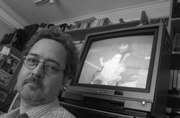
Bio: Born in 1956, Mario Piazza lives in Argentina. He began filming at the age of 18. He works in the TV and Film School of Rosario. In 2004 he was declared "Distinguished film director of the City" by Rosario's Municipal Town council. Retrospective screenings of his work have been organized in Argentina on several occasions.
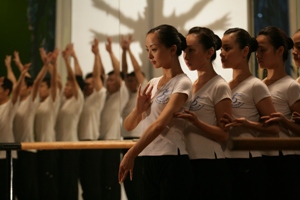 My Dream
My DreamWang Hong Hai, China, 2007, 50 min.
Synopsis: Inspired by the Chinese Disabled People's Performing Art Troupe, the Beijing Film Academy presents the excellent performances on stage and the lives behind the scenes of seven disabled performers. The film combines 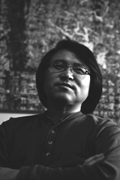 artistic creativity and psychological insight by presenting a variety of shows, from traditional Chinese to modern eastern forms of expression. They are a group of ordinary young people who are as energetic as all others of their age. They are unique performers who pursue their dreams.
artistic creativity and psychological insight by presenting a variety of shows, from traditional Chinese to modern eastern forms of expression. They are a group of ordinary young people who are as energetic as all others of their age. They are unique performers who pursue their dreams.
 artistic creativity and psychological insight by presenting a variety of shows, from traditional Chinese to modern eastern forms of expression. They are a group of ordinary young people who are as energetic as all others of their age. They are unique performers who pursue their dreams.
artistic creativity and psychological insight by presenting a variety of shows, from traditional Chinese to modern eastern forms of expression. They are a group of ordinary young people who are as energetic as all others of their age. They are unique performers who pursue their dreams.Bio: Wang Hong Hai graduated from the Beijing Film Academy in 1982, where he is now dean of the Department of Fine Arts. A member of the Chinese Festival Association and of the Chinese Television Institute of Technology, Wang has earned several prizes for his work. He has directed documentaries, television series and is a noted painter.
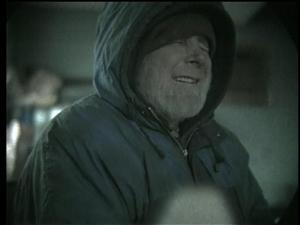 Plan F
Plan FCasey Hayward, USA, 2006, 27 min.
Synopsis: The story of this occupational-therapist-turned-auto-mechanic would be unremarkable except that, at the age of 20 Marko lost his eyesight to a degenerative disease. Marko's modest and unassuming life is powerfully documented in Plan F, which follows his daily routine running his own auto repair shop. Navigating piles of parts,
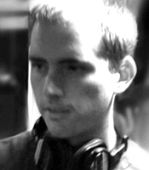 uncooperative employees, a pesky cat, and customers' unruly cars, Plan F is a visual demonstration of the power of reinvention when life changes the plan.
uncooperative employees, a pesky cat, and customers' unruly cars, Plan F is a visual demonstration of the power of reinvention when life changes the plan.Bio: Casey Hayward has worked as a cameraman, film director and editor. Now an Assistant Professor of Telecommunications at Ohio University, he continues to pursue independent documentary filmmaking. His films have been shown in major festivals such as Cannes "Marché du Film" and the UN Association Film Festival.
 Planet of the Blind
Planet of the BlindSven Werner, Germany/ Ireland, 2006, 20 min
Synopsis: Planet of the Blind is an artistic interpretation of Stephen Kuusisto's life story as described in his memoirs. Stephen was born visually impaired. Reflecting his mother's denial, he grew up pretending he could see. He marched everywhere at dizzying speeds without a cane, ashamed of his blind self. The film explores the struggle and beauty of blurred vision. By offering a sense of reduced vision the film creates an experience of disorientation while emphasising the poetic beauty and sense of discovery inherent therein.

Bio: Sven Werner studied Business Administration in Germany and Arts in Cambridge. After living in Belgium, Luxembourg and Austria he moved to Ireland, where he realized several performance art events. He then went to a Film School and has since made several short films that have won awards.
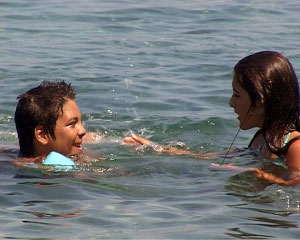 Please Listen to Me
Please Listen to MeMarianna Economou, Greece, 2008, 52 min.
Synopsis: Costa's deep desire to go to a mainstream high school and not to a special school reveals how differently the members of his family comprehend, experience and manage Costa's physical disability. The film 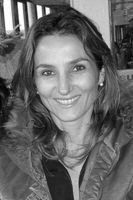 follows the psychological anguish, the dilemmas and conflicts that the choice of school causes to the family. At the same time, the film unravels Costa's special relationship with his sister - a definitive relationship for them both. "If I fall, I have the strength to get up. If they tease me, I will not cry. I want to make friends. Let me be responsible for myself."
follows the psychological anguish, the dilemmas and conflicts that the choice of school causes to the family. At the same time, the film unravels Costa's special relationship with his sister - a definitive relationship for them both. "If I fall, I have the strength to get up. If they tease me, I will not cry. I want to make friends. Let me be responsible for myself."
 follows the psychological anguish, the dilemmas and conflicts that the choice of school causes to the family. At the same time, the film unravels Costa's special relationship with his sister - a definitive relationship for them both. "If I fall, I have the strength to get up. If they tease me, I will not cry. I want to make friends. Let me be responsible for myself."
follows the psychological anguish, the dilemmas and conflicts that the choice of school causes to the family. At the same time, the film unravels Costa's special relationship with his sister - a definitive relationship for them both. "If I fall, I have the strength to get up. If they tease me, I will not cry. I want to make friends. Let me be responsible for myself."Bio: Marianna Economou studied Social Anthropology, Photojournalism and Video Production in London. Her photography work has been exhibited in Greece and England. During the past 10 years she has been producing and directing documentary films. She has filmed many videos for the Greek Cerebral Palsy Society.
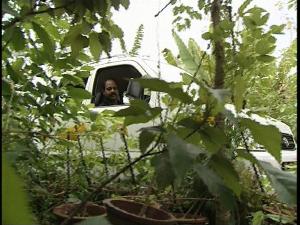 Race Against Time
Race Against TimeMadhu Janardanan, India, 2007, 13 min.
Synopsis: Musthafa Thorappa became physically disabled as the result of a road accident in 1994. After a year of loneliness in his bedroom, he found meaning in life in designing cars for people all over India that have suffered similar road accidents. He is now running a mechanical workshop solely for this purpose. He has designed a car gear 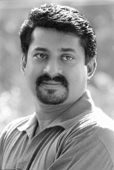 system that has the accelerator, clutch, break and gear all in one. Musthafa Thorappa is an inspiring man who has helped over 200 persons that shared his fate to see life positively once again.
system that has the accelerator, clutch, break and gear all in one. Musthafa Thorappa is an inspiring man who has helped over 200 persons that shared his fate to see life positively once again.
 system that has the accelerator, clutch, break and gear all in one. Musthafa Thorappa is an inspiring man who has helped over 200 persons that shared his fate to see life positively once again.
system that has the accelerator, clutch, break and gear all in one. Musthafa Thorappa is an inspiring man who has helped over 200 persons that shared his fate to see life positively once again.Bio: Madhu Janardanan has been a member of the Rasmi Film Society (India) for over 20 years. He has been assigned the direction and the organization of international film festivals. He is also a member of the Indian Film Societies Federation.
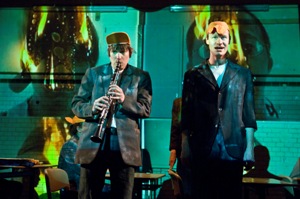 Ramba Zamba
Ramba ZambaLara Quaglia, Germany/ Greece, 2008, 32 min.
Synopsis: Due of the birth of his down syndromed child, a famous theatre director of the Deutsche Theater, Klaus Erforth, decides to change his life, and the life of his companion, after the fall of the wall of Berlin. In 1990 it was founded the theatre Ramba Zamba, situated now in the Kultur Brauerei and a powerful creative centre, played by handicaped actors. "Hommage a Tadeusz Kantor" is their last theatre- piece. And a moving story of love and social engagement.
Bio: Student of acting at Jacques Lecoq International School and at L´Universite de La Danse, she develops the creative concept of author in different fields (Theatre, tv, cinema). Film- Director of 13 titles ( SPOTADS" „The Rhyme of the ancient mariner", Walking on the war, „Egyptian Bread" ). Graduated as Master in Film-Financing by MEDIA ,at La Sorbonne (FR) 2004. Last film „Prisoners of Freedom". Producer of the German „Blauer Reiter Filmproduktion". English, French,Spanish and German speaking .
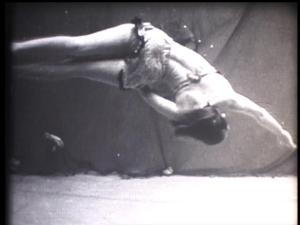 Severing the Soul
Severing the SoulBarbara Klutinis, USA, 2008, 18 min.
Synopsis: When Barbara Klutinis read the obituary of Rosemary Kennedy in the paper in 2005, she was appalled by the injustices that had befallen her at such a young age. The more she read about Rosemary's ordeal, the more strongly she felt that she wanted to make a film about her lobotomy. As Barbara began to research lobotomies in general, what came to light were the primitive and crude methods of dealing with mental illness from the 1930s to the 1960s. She used found footage from that period in order to establish the mindset out of which the psychosurgery movement emerged.
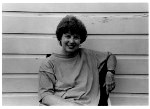
Bio: Barbara Klutinis is a retired teacher of film studies at Skyline College in San Bruno, California and San Francisco State University. She studied Film Production and has been making films since 1981. Prior to that, she was a photographer.
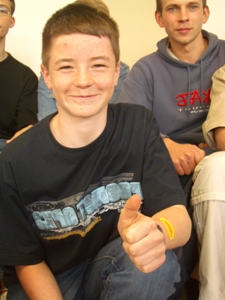 Stark! Kevin: Hear Me Out!
Stark! Kevin: Hear Me Out!Georg Bussek, Germany, 2005, 15 min.
Synopsis: Kevin struggles every day to speak. But stutters and stammers painfully and rarely makes it to the end of a sentence. He finds it hard to bear. Now he is going to undertake a gruelling training course to try to solve the problem. Will he succeed?

Bio: Georg Bussek studied Theatre, Film and Television in the University of Cologne. He has worked as a television presenter, scriptwriter and director for private and public television networks. He has founded his own production company E+U-TV.
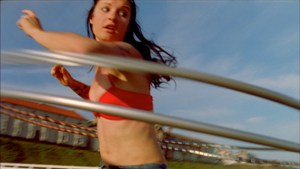 DV8: The Cost of Living
DV8: The Cost of LivingLloyd Newson, UK, 2004, 34 min.
Synopsis: David and Eddie are street performers struggling to get by in a seaside town. The Cost of Living follows them as they work, argue, fail at romance and fall out with old friends, in a film which is part dance film, part drama. All of the stories are about how we value ourselves and other people. The Cost of Living is the fourth film by DV8, and is choreographed and directed by Lloyd Newson. DV8's work is about taking risks aesthetically and communicating ideas and feelings clearly and unpretentiously.
Bio: Lloyd Newson founded the DV8 Physical Theatre and has been the Artistic Director of DV8 since 1986. He has created 15 works for stage, consistently receiving major British and international awards. Newson has had a dynamic impact on contemporary dance by challenging the traditional aesthetics and concentrating on connecting meaning to movement.
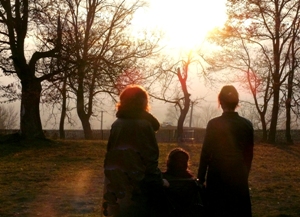 The Grain of My Hope
The Grain of My HopeVladimir Perović, Serbia, 2007, 24 min.
Synopsis: Tanja is different. She can't do what others can. But with her mother's and sister's help she can do much more. Not only to live her life with dignity, but also to express her thoughts, wishes and cheerfulness in a very special way. Grain by grain, hour by hour, more than 250 kinds of grains are transformed, in the hands of those three women, into marvellous grainy icons. In this matter, Tanja succeeds to match her mother and sister.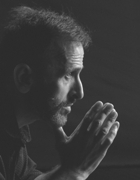

Bio: Vladimir Perović studied Film and Television Direction in Serbia. He mainly directs documentaries and he has won 38 prizes. He used to teach in the BK Academy of Arts in Belgrade. He has been a jury member in numerous film festivals.
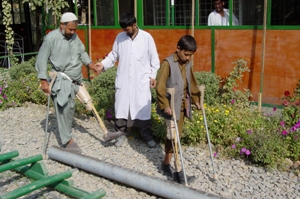 The Italian Doctor
The Italian DoctorEsben Hansen, Denmark, 2006, 28 min.
Synopsis: The Italian doctor, Alberto Cairo, is a man with a unique mission: He wants to restore the dignity of every mine victim in Afghanistan. Seeing five different governments and surviving two civil wars, Alberto has been head of  the Red Cross Orthopaedic Centre in Kabul for the past 15 years. Together with his staff of 150 disabled workers he has helped more than 50.000 mine victims walk again, and he has fought a tough struggle to reintegrate them into the war-torn Afghan society. The Italian Doctor tells the story of this passionate Italian, and how he helps two new patients, 8-year-old Mehdi and elderly Fatima, back on their feet.
the Red Cross Orthopaedic Centre in Kabul for the past 15 years. Together with his staff of 150 disabled workers he has helped more than 50.000 mine victims walk again, and he has fought a tough struggle to reintegrate them into the war-torn Afghan society. The Italian Doctor tells the story of this passionate Italian, and how he helps two new patients, 8-year-old Mehdi and elderly Fatima, back on their feet.
 the Red Cross Orthopaedic Centre in Kabul for the past 15 years. Together with his staff of 150 disabled workers he has helped more than 50.000 mine victims walk again, and he has fought a tough struggle to reintegrate them into the war-torn Afghan society. The Italian Doctor tells the story of this passionate Italian, and how he helps two new patients, 8-year-old Mehdi and elderly Fatima, back on their feet.
the Red Cross Orthopaedic Centre in Kabul for the past 15 years. Together with his staff of 150 disabled workers he has helped more than 50.000 mine victims walk again, and he has fought a tough struggle to reintegrate them into the war-torn Afghan society. The Italian Doctor tells the story of this passionate Italian, and how he helps two new patients, 8-year-old Mehdi and elderly Fatima, back on their feet. Bio: Born in 1978, Esben Hansen studied Audiovisual Communication in Spain and Ethnography and Social Anthropology in Denmark. His film The Italian Doctor is supported, among other institutions, by The Danish Ministry of Foreign Affairs and The Danish Section of the Red Cross.
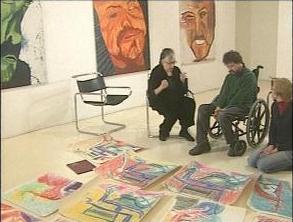 Τhe King of Arts
Τhe King of Arts Bill Whiteford, USA, 2007, 10 min.
Synopsis: Dan Keplinger was born with cerebral palsy, but his difficulty in communicating with the world evaporated when he discovered his talents as an artist. With the recognition of an Academy Award, Dan flourishes in the national spotlight. Suddenly, Dan, a mere art student, is now represented by a famous New York art gallery, with shows all over the country. The camera follows him as he visits his gallery in New York and at an opening in a Baltimore Gallery. Most of all, it chronicles the extraordinary creative process and an unbelievable intensity as Dan imprints his inner being on canvas. 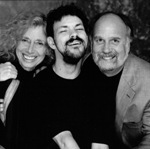

Bio: Bill Whiteford has been producing documentaries since 1980. His productions have been honored with an Academy Award, a Peabody Award, three national Emmy nominations and six regional Emmy Awards. His documentaries are distributed internationally.
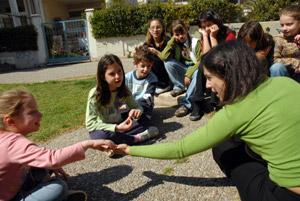 The Pirate of Time
The Pirate of TimeMarina Danezi, Greece, 2008, 25 min.
Synopsis: Marina and Maria met each other 18 years ago. They are deeply connected through their common childhood experiences. Today, Marina is studying theatre and works as a storyteller. Maria is studying psychology and writes poems, fairytales and lyrics. The two girls have grown to dream and create together. Marina, inspired by a  fairytale of her friend's, returns to the place they met, the rehabilitation centre for children with cerebral palsy. During a speech at Panteion University, Maria opens her heart, not only to her fellow students, but to the whole world.
fairytale of her friend's, returns to the place they met, the rehabilitation centre for children with cerebral palsy. During a speech at Panteion University, Maria opens her heart, not only to her fellow students, but to the whole world.
 fairytale of her friend's, returns to the place they met, the rehabilitation centre for children with cerebral palsy. During a speech at Panteion University, Maria opens her heart, not only to her fellow students, but to the whole world.
fairytale of her friend's, returns to the place they met, the rehabilitation centre for children with cerebral palsy. During a speech at Panteion University, Maria opens her heart, not only to her fellow students, but to the whole world.Bio: Marina Danezi has studied Acting and Mathematics. As an actress, she has participated in numerous theatrical projects. She has also worked as assistant director and scientific collaborator on two documentary films.
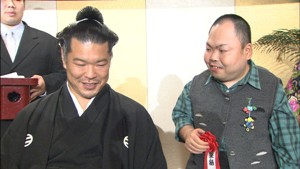 The Poet and the Sumo Wrestler
The Poet and the Sumo WrestlerMitsuko Hashimoto, Japan, 2007, 34 min.
Synopsis: Thirty-year-old Akira Kurisu has shown a remarkable talent for writing prose and poetry, while coping with physical and mental disabilities. His writings exhibit a unique sensibility, suffused with the many little joys of everyday life. For over a decade, Akira has had a pen pal to whom he has been sending letters and poems: a professional sumo wrestler named Koto Kan-yu. This wrestler was sidelined frequently with injuries, but he persevered. The two pen pals have a keen understanding of the trials and tribulations that each has undergone. The program explores the relationship of the two men as they provide each other with much-needed moral support.

Bio: Mitsuko Hashimoto joined the Japan Broadcasting Corporation in 2002 and has since made numerous programmes on the ways in which people deal with illness. She has tackled issues such as cerebral aneurysms, the impact of asbestos exposure and disability.
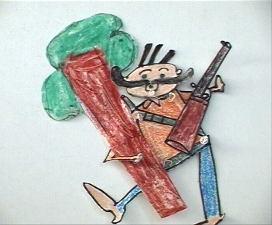 The Resonance
The ResonanceMeenakshi & Vinay Rai, India, 2005, 10 min.
Synopsis: The film captures the movement initiated by a filmmaker duo to encourage talent among children with diverse disabilities through the special approach of animation workshops. It presents the outcome, which reflects a cooperative effort by children addressing the world around them with extraordinary imaginations. What are the images they have in their minds? What do they think? What kinds of things entertain or upset them? Do they understand the complexities of the world around them? What are the socio-environmental factors that influence their thought process? What are their fears and insecurities?
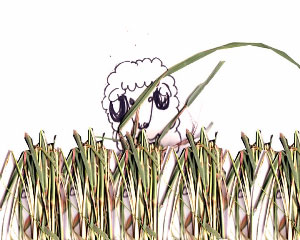 The Sheep Tale
The Sheep TaleMeenakshi & Vinay Rai, India, 2007, 4 min.
Synopsis: The Sheep Tale is based on the imagination of physically and mentally disabled children attempting to find out the truth behind famous proverbs about sheep (i.e. sheep always follow the flock). This animation film explores, in the process, the way disabled children understand the world around them and the issues that concern them.
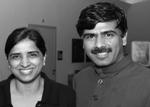
Bio: Meenakshi and Vinay Rai make films on issues of social relevance and have won 27 international and national awards. They have introduced a workshop methodology that uses animation as a therapy for disabled children and have been invited all over the world to run projects.
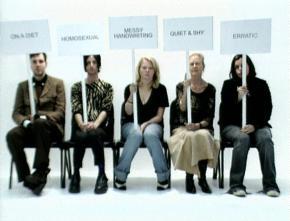 The Waiting Room
The Waiting RoomMona Ruijs, Australia, 2006, 10 min.
Synopsis: "The statistics on sanity are that one in four people are suffering from a form of mental illness. Think of three of your best friends. If they are okay, then it's you."
Rita Mae Brown

Bio: Mona Ruijs was born in Melbourne. In 2005 she completed a Graduate Diploma of Film & Television and received the Sony Australia Script Writing Award for Most Innovative & Daring Production. In 2006 she completed another Graduate Diploma in Documentary. Her films have been screened in several countries abroad.
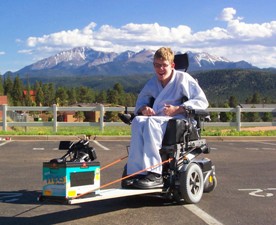 Thumbs Down to Pity
Thumbs Down to PityBenjamin Snow, USA, 2006, 1 min.
Synopsis: For many years, Hollywood movies have perpetuated the pity-filled stereotype that characters who have disabilities are unproductive losers with lousy lives. Α karate-wielding college journalism student who actually uses a wheelchair admonishes this worn-out characterization. Using real-life examples, he deftly illustrates how "I have a disability, and my life is nothing like the Hollywood stereotype" and votes THUMBS DOWN TO PITY toward people with disabilities.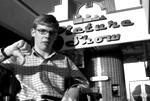

Bio: Born in 1986, Benjamin Snow is considered a renaissance man of disability awareness-building in the USA. Benjamin has cerebral palsy and uses a power wheelchair. His film Thumbs Down to Pity has won national prizes and international film festival awards.
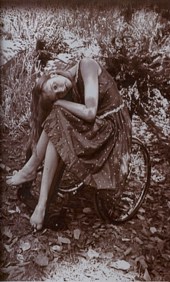 Twisted
TwistedLaurel Chiten, USA, 2006, 56 min.
Synopsis: At age 17, filmmaker Laurel Chiten was in a terrible car accident. Months later, her neck began jerking out of control. Doctors finally figured out that Chiten had dystonia - a neurological disorder that forces your muscles to twist into abnormal, often painful, movements or postures. In Twisted, Chiten's narration connects the stories of other dystonia sufferers. Together, these individuals try to answer the question, when you are trapped inside your body, what will set you free?

Bio: Laurel Chiten has been an independent filmmaker and producer for 20 years. She has directed award-winning films and has been invited abroad as a lecturer on several occasions. Chiten was a teacher at the Boston Film and Video Foundation in Boston. She is also a writer and a certified American Sign Language interpreter.


